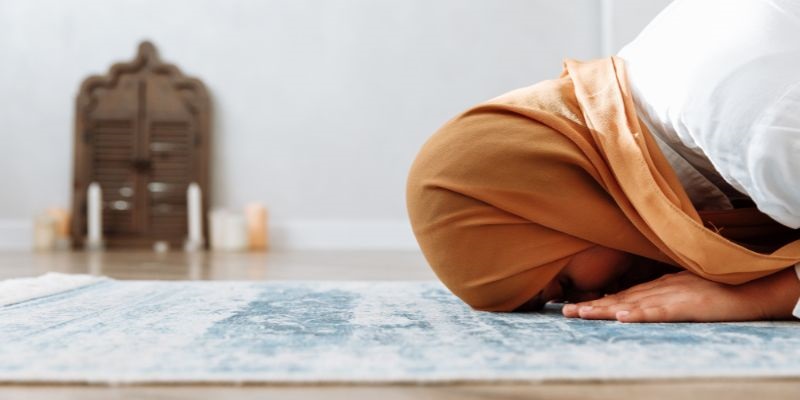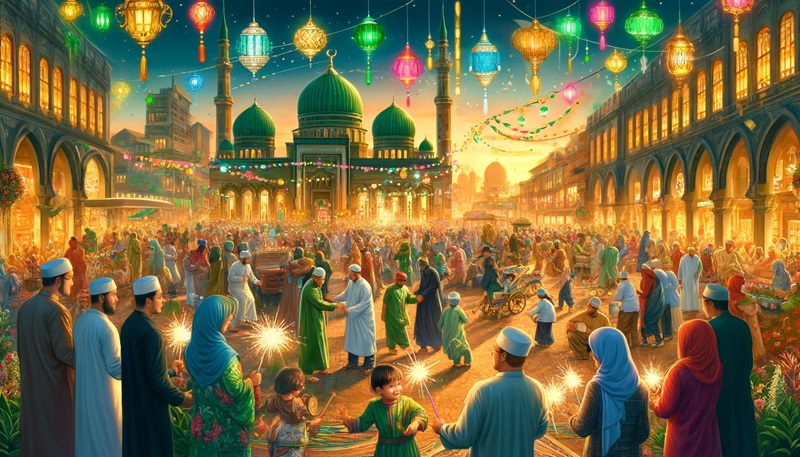What is Ramadan?
The word Ramadan comes from the Arabic root word – “ramiḍa” or “ar-ramaḍ,” which means scorching heat or dryness. It’s a reflection of the hardship of fasting or this time’s association with the hot summer months.
Ramadan, also spelt Ramazan, is the ninth month of the Islamic lunar calendar. It is the holiest month for Muslims all over the world.
This month is a period of fasting, reflection, devotion, generosity, and sacrifice for Muslims.
Here’s all about the history of Ramadan and also some intriguing facts about Ramadan.
What is Ramadan?

The word Ramadan comes from the Arabic root word – “ramiḍa” or “ar-ramaḍ,” which means scorching heat or dryness. It’s a reflection of the hardship of fasting or this time’s association with the hot summer months.
Fasting during Ramadan is called Sawm, and is one of the Five Pillars of Islam – the foundation of Muslim life.
The other pillars are Shahada (faith), Salah (prayer), Zakat (charity), and Hajj (pilgrimage to Mecca).
History of Ramadan

The significance of Ramadan goes back to 610 A.D. According to Islam, the Quran (Holy book) was first revealed (shown) to the Prophet Muhammad during the Laylat al-Qadr (The Night of Power).
While the exact night this was is unknown, it was observed during the last ten days of Ramadan. Thus, this month is a holy month for the Muslims, which they commemorate with prayer, reading of the Quran, and reflection on its teachings.
The Spiritual Significance of Ramadan

Ramadan is a time for Muslims to focus on God, be grateful, practice self-discipline and sacrifice.
Fasting: In this month, Muslims fast from dawn (sunrise) until sunset. They don’t eat food or drink liquids. The fast is broken with a meal known as ‘Iftar’, often starting with dates and water, followed by a bigger meal. Before dawn, Muslims eat a pre-fast meal called ‘Suhoor’ to keep them going through the day.
Community: Also, the emphasis on community is strong during Ramadan. Iftar meals are often shared with family, friends, and the wider community, including the poor and needy.
Charity: It’s also a time for charity, known as ‘Zakat’, one of the pillars of Islam. Many Muslims choose to do charity during this month.
Cultural Practices
Cultural practices during Ramadan can be a bit different in parts of the Islamic world. Local traditions, cultures, and cuisines influence these.
However, some common practices include – going to mosques more, recitation of the Quran, and engagement in special prayers, known as ‘Taraweeh’.
Eid al-Fitr: The Festival of Breaking the Fast

The month of Ramadan ends with the celebration of Eid al-Fitr, a festive day signifying the end of fasting.
The day begins with a special prayer service, followed by social gatherings, feasting, and the exchange of gifts. It’s also a time when Muslims are encouraged to forgive and seek forgiveness.
8. Facts About Ramadan

- Global Observation: Over a billion Muslims around the world observe Ramadan, making it one of the most widely practiced rituals.
- Night of Power: The Laylat al-Qadr, which falls within the last ten nights of Ramadan, is considered the holiest night in Islam. It is believed that prayers on this night are especially rewarding.
- Community Iftars: In many parts of the world, mosques and community centers host large Iftars to bring people together, emphasizing community and inclusivity.
Ramadan is much more than just fasting from dawn until dusk. It’s a time for spiritual growth, reflection, community, and charity. Even though it is hard to do, the month is eagerly awaited by Muslims. They see it as a time to strengthen their faith, discipline their bodies, and purify their hearts.



Comments